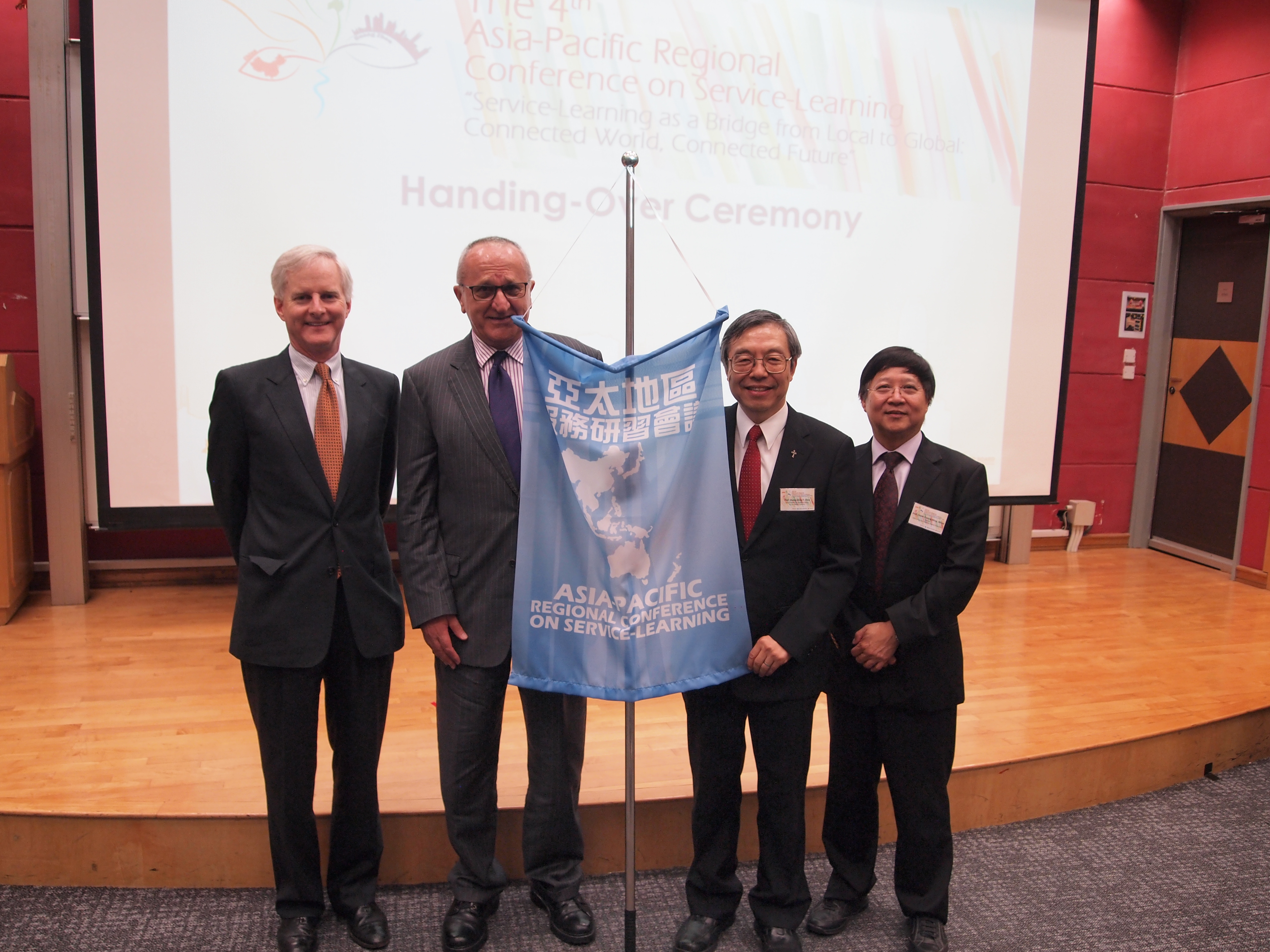Location
MD217, Paul Cardinal Shen Medical Building, Fu Jen University
Start Date
29-5-2015 10:40 AM
End Date
29-5-2015 11:50 AM
Description
This paper is based on an explorative action research or teacher research, focusing on the integration of service -learning into the classes of Teaching English to Young Learners in the English Department, to find out the effects of service-learning on the participants' learning. The study followed the method of action research comprising four cyclical phases: "Planning, Action, Observation an d Reflection". The Action implemented was the service-learning comprising "Investigation, Planning, Action, Reflection, Demonstration and Evaluation" integrated into the Basic Course Outline. The service-learning was initiated with the Investigation to identify the community need, followed by the Planning to design the service including objectives and service activities, which were carried out in the Action stage and concluded in Demonstration. Students were engaged in Reflection since the first day concerning their contribution to the community until the completion of the service in the Evaluation stage to evaluate their whole service-learning process in their written reflection. The subjects consisted of two batches of students. The first batch in 2013, consisting of eight students, served some Primary School children in the vicinity of the University, assisting them to learn English. The second batch with six students in 2014 assisted the tutors at the Early Education Center (PAUD) teaching English to the young learners. The data were collected through observation on the service participants and their activities as well as through their sharing and written reflection. These were analyzed and interpreted to arrive at the findings. The result revealed that the service-learning gave the students the opportunities to experience and put into practice what they had learned in the classroom, to relate the theories to the actual practice in real context. Furthermore, the students learned to work as a team and to interact with others from different backgrounds, giving them the chance to develop interpersonal skills. The service-learning produced a reciprocal result benefitting not only the service recipients but also the students; supporting the belief that service -learning can also contribute to the participants' character development.
Recommended Citation
Mardijono, J. J. (2015, May). Service-learning integrated into the classes of Teaching English to Young Learners. Paper presented at the 5th Asia-Pacific Regional Conference on Service-Learning: Love Journey: Community Engagement through Service-Learning, Fu Jen Catholic University, Taiwan.
Included in
Service-learning integrated into the classes of Teaching English to Young Learners
MD217, Paul Cardinal Shen Medical Building, Fu Jen University
This paper is based on an explorative action research or teacher research, focusing on the integration of service -learning into the classes of Teaching English to Young Learners in the English Department, to find out the effects of service-learning on the participants' learning. The study followed the method of action research comprising four cyclical phases: "Planning, Action, Observation an d Reflection". The Action implemented was the service-learning comprising "Investigation, Planning, Action, Reflection, Demonstration and Evaluation" integrated into the Basic Course Outline. The service-learning was initiated with the Investigation to identify the community need, followed by the Planning to design the service including objectives and service activities, which were carried out in the Action stage and concluded in Demonstration. Students were engaged in Reflection since the first day concerning their contribution to the community until the completion of the service in the Evaluation stage to evaluate their whole service-learning process in their written reflection. The subjects consisted of two batches of students. The first batch in 2013, consisting of eight students, served some Primary School children in the vicinity of the University, assisting them to learn English. The second batch with six students in 2014 assisted the tutors at the Early Education Center (PAUD) teaching English to the young learners. The data were collected through observation on the service participants and their activities as well as through their sharing and written reflection. These were analyzed and interpreted to arrive at the findings. The result revealed that the service-learning gave the students the opportunities to experience and put into practice what they had learned in the classroom, to relate the theories to the actual practice in real context. Furthermore, the students learned to work as a team and to interact with others from different backgrounds, giving them the chance to develop interpersonal skills. The service-learning produced a reciprocal result benefitting not only the service recipients but also the students; supporting the belief that service -learning can also contribute to the participants' character development.
